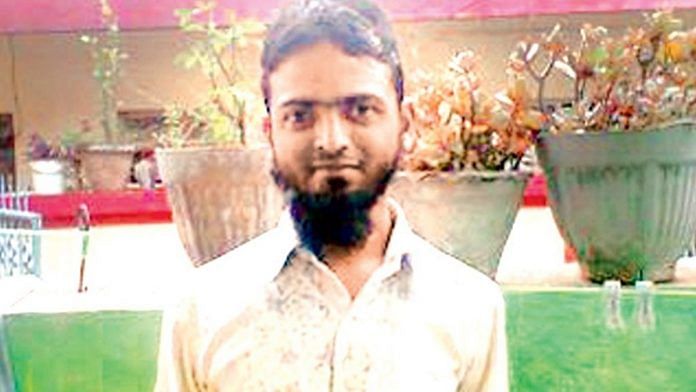New Delhi: Nine years after communal riots in Pune led to the lynching of IT professional Mohsin Shaikh in 2014, the district court has acquitted all 21 accused in the case on the grounds that none of the eyewitnesses could conclusively identify the alleged killers.
In a judgement passed last month and uploaded Wednesday, additional sessions judge S.B. Salunkhe acquitted all of the accused in Shaikh’s lynching, including Hindu Rashtra Sena leader Dhananjay Desai, holding that the accused must be given the benefit of the doubt.
The court also noted that during the trial, the police had not placed on record the contents of the alleged hate speech allegedly delivered by Desai though a reference was made to it in the chargesheet.
“It is clear that the accused no.19 (Desai) who is President of Hindu Rashtra Sena has not given a provocative speech within one month up to the alleged incident. He was in custody when the alleged incident took place. The details about the speech which [were] given by the accused [has] not come on record,” read the order.
This led the court to conclude that the prosecution had failed to bring cogent and reliable evidence before the court.
Moreover, the court also observed that Desai had made the alleged hate speech five months before the communal riots and that he was in jail when Shaikh was attacked.
The police had claimed that Desai, who had over 23 cases against him, provoked the Hindu mob to take revenge against Muslims by distributing pamphlets three months before the riots.
Prosecution witnesses who testified in the case had said that it was dark when Shaikh was attacked and the perpetrators had their faces covered.
Shaikh, who was in his late twenties, was attacked in June 2014 during Hindu-Muslim clashes that erupted after objectionable pictures of the 17th-century Maratha ruler Shivaji and Shiv Sena patriarch Bal Thackeray went into circulation on social media.
Mohsin Shaikh was returning to his room after offering evening prayers on 2 June 2014 when he was targeted by men armed with hockey sticks, bats and stones. He was later admitted to the ICU at Noble Hospital in Pune’s Hadapsar, where he succumbed to injuries.
Subsequently, the police filed FIR against the 21 accused under multiple penal provisions, including murder and rioting by being members of an unlawful assembly.
Also Read: 16 yrs of tareekh pe tareekh & a ‘victory’ after death — court staffer’s long fight for justice
‘Ladke ko khatam karo’
The additional public prosecutor appearing for the State of Maharashtra, said that the state had proved the case “beyond reasonable doubt”.
It extensively relied on a statement of one Sajid Khan, an eyewitness to the incident, who had seen the persons assaulting Shaikh and screaming “Ladke ko khatam karo Dhananjay Desai Zindabad” (Finish the boy, long live Dhananjay Desai).
The additional public prosecutor also relied on a number of other eyewitnesses, including injured witnesses, who had submitted that the accused had assaulted Shaikh. The state argued that the case was proved beyond reasonable doubt and the accused must be convicted.
The defence, on the other hand, contested the prosecution’s case, arguing that the advocates for the accused had not been able to establish the case against their clients.
The defence counsel said the witnesses appearing for the prosecution who claimed to be eyewitnesses to the incident failed to identify the accused. According to the accused, by the eyewitnesses’ own admission, it was dark and those attacking Shaikh had covered their faces with cloth, and the accused therefore cannot be held liable for the crime.
Accused entitled to benefit of doubt
Giving all the 21 accused a clean chit, the court said that Shaikh’s death was due to 14 injuries sustained on his body, especially incised injuries. This showed that his death was homicidal in nature.
But none of the witnesses, including Shaikh’s brother Mobin Mohammed, were able to identify the accused.
Noting that frenzy prevailed due to the ongoing riots, the court said that it is “highly improbable” that the accused had assaulted the deceased.
The district court additionally noted that when the incident took place, Desai was in custody in relation to another crime and had not given a speech within one month of the incident.
The crime was registered as a consequence of the speech, however, the details of the same were not placed on record, the court noted.
It thus said that the prosecution had failed to bring cogent and reliable evidence on record to show that the accused had in fact committed the offence.
“From the evidence on record and above discussions, I come to the conclusion that the prosecution has failed to prove the guilt of the accused beyond reasonable doubt. The accused are entitled for benefit of doubt and they must be acquitted,” the order read.
(Edited by Amrtansh Arora)
Also Read: ‘Man freed in Chhawla rape-murder case now held for murder’ — Delhi Police to SC in review plea



